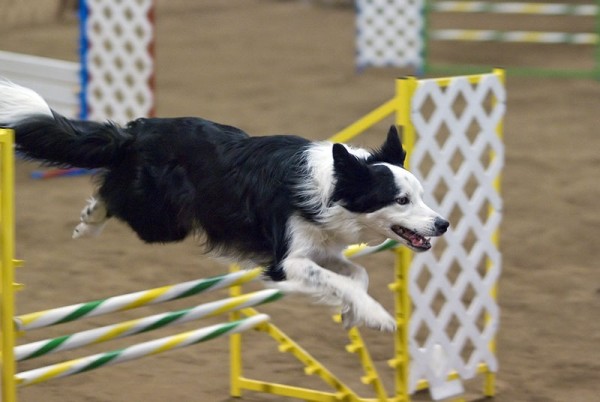 |
||
What do I need to know about puppy obedience training?Puppy obedience training can be very easy or very difficult. Some owners take to puppy training like a duck to water. Other's find that the puppy is training them. Similarly, some pups are eager to please, and thus highly trainable. Whilst others can be stubborn, or very boisterous.If you find yourself in the having difficulties category; why don't you sign up for obedience classes. And even if you're not, there is no better way to socialise your puppy than by attending puppy socialisation classes. These are frequently run separately from the obedience classes and are open to pups under 4 months of age. A type of canine kindergarten. Obedience classes are open to older dogs as well as to pups that didn't attend socialisation classes. Basic obedience classes will take you through the five basic dog training commands as discussed at teaching a puppy to sit. The instructors set out to not only train your dog, but to teach you all about canine obedience. How these classes are formulated is: that you are shown the correct way to do things, you try it out a few times during the class, and then you go home and practice with your pup. The onus is on you to train your pup. The trainer won't do that for you, so don't expect it. 
Locating dog training classes is quite easy. Call your vet or local pet shop, or canine beauty parlor. Or try your local paper or phone book. The next thing thing to address is: Which puppy obedience training class should I choose?
Next you should attend a class without your puppy. Use your own judgment to assess the class.
And the final question-are you confident that you and your puppy would be happy enrolling in these classes under the instruction of this trainer? By going along to obedience classes, you and your puppy, will get to meet all types of dogs and their owners. They can be real fun times for the pair of you. Providing you're willing to put the work in, your puppy will emerge from puppy obedience training a well-mannered, well-adjusted, well-trained dog.

"
| ||
|
| Puppy Training Start Page | House-training a puppy. |Crate training a puppy. |Dog Names Start Page |Dog Videos Start Page | Return to Homepage Or you can .........
|
||
|
|
||